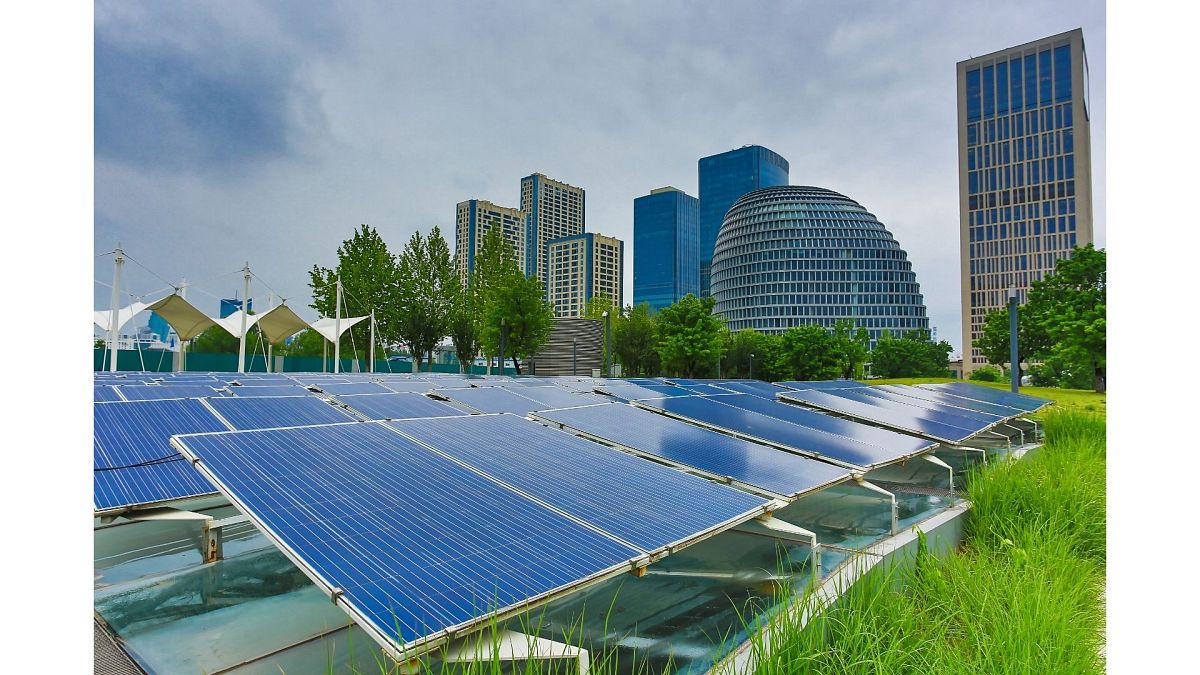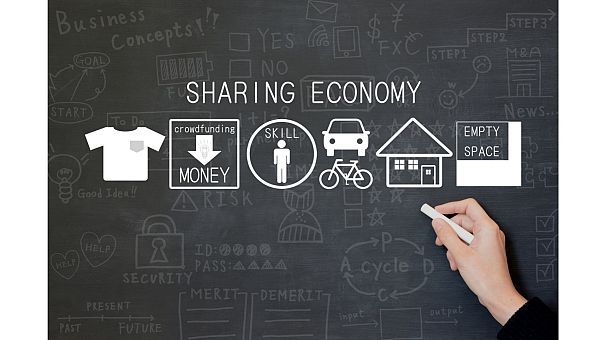COVID recovery packages should be directed towards those that can have the most impact in the fight against climate change.
The views and opinions expressed in this article are those of the author.
Green shoots. When emerging from any economic crisis, governments are traditionally in search of them.
Whether it was the UK's Chancellor of the Exchequer, Norman Lamont who first looked to them nearing the end of the 1991 recession, or the Federal Reserve Chairman Ben Bernanke during the Global Economic Crisis of 2008, global leaders drive economic rebounds with optimistic statements and fiscal stimulus.
This time though, the focus should be on supporting green, green shoots. The reason? Climate change has reached a critical level.
We already see the devastating impact of climate chance as wildfires decimate huge parts of the Mediterranean, particularly in Turkey and Greece. And the recent IPCC report is clear - things are only going to get worse so the time to act is now.
Government response to the climate crisis
Governments around the world are beginning to make substantial moves in the right direction.
President Biden has recommitted the US to the Green New Deal and pledged to reduce emissions 50 per cent by 2030. Europe will go carbon neutral by 2050 by investing in renewables and green infrastructure. Just this past week, the EU published several proposals on how to get there while also committing substantial funds. At least 30 per cent of the EU's €1.8 trillion (£1.64 trillion) long-term budget will be spent on climate-related measures.
In 2020, the UK introduced a Ten Point Plan for a Green Industrial Revolution, investing in various promising technologies from green hydrogen and electric vehicles to carbon capture and storage projects. At the most recent G7 summit, Boris Johnson emphasised the potential of G7 nations to “bounce back strongly from the virus” in a way that also achieves long-term societal goals.
Yet despite the initiatives and funding announcements, governments will ultimately be facilitating a much needed sustainability revolution rather than implementing it themselves. It inevitably will be the private sector that must deliver.
Private sector must step-up climate fight
Already companies are being held to a higher standard than ever by their stakeholders. Examples include the latest Exxon proxy fight over the appointment of independent directors or Shell's shareholder demands for more climate action. As a result, we are starting to see very large corporates reducing carbon emissions and becoming better stewards of the planet.
But when it comes to innovation, large corporates tend not to lead. It is far more challenging for them to dismantle their successful ways of working than it is for a start-up to offer a radical new approach.
For rapid innovation, we need to look to entrepreneurs. Their new ideas, innovative technologies, and sheer dynamic energy can drive change much faster than any market incumbent.
New models: Circular and sharing economies
The good news is that sustainable change is happening all around us. The rise of the responsible consumer, particularly in Europe, has led to a host of sustainable businesses that are both good for the planet and commercially exciting.
Increasingly, younger members of society are enthusiastic early adopters of these offerings, as they are actively thinking about the impact of their choices. This strong trend is giving today's entrepreneurs new opportunities to approach business ideas differently.
The trend towards sustainable consumption includes the obvious idea of eliminating needless waste and sometimes foregoing the latest thing. Why throw out that old washing machine when it can be easily fixed through an online tutorial and a rapid delivery of a spare part? French company SOS Accessoire offers this service today and is at the heart of what is now called the circular economy.
Sharing items between consumers, particularly those which are costly and only used occasionally, is also part of this trend.
Within the transport sector, we can see great examples of the emerging sharing economy. Companies like Vulog are enabling people in cities to avoid the hassle of car ownership. Their software platform allows vehicles to be picked up and dropped off anywhere. Most of their vehicles are electric as well, with communal use making the economics of electric vehicle (EV) ownership more attractive.
We will continue to see technological innovations in the food and agriculture sector too. Take UK company Eagle Genomics which is working to better our health and our planet’s biodiversity through improving our understanding of the microbiome. The more society learns about science, the more we can take steps to preserve it, ensuring ongoing biodiversity and an improved human condition.
Bits and bytes rather than concrete and steel
Our economy must change in the face of the climate crisis. Why not use this unprecedented opportunity as a catalyst to foster a green revolution?
Since we urgently need solutions to help save the planet, we should support the entrepreneurs who are in the vanguard of enabling sustainable change. The talent and desire are there, and government support should be directed in helping them rapidly scale their enterprises to address the climate emergency.
With strong political leadership backed by financial and policy support, governments can lay the foundation for a sustainable, economic transformation. To support our digital infrastructure, stimulus funding should back the rollout of new, greener technologies and services, focusing on 'bits and bytes' rather than 'concrete and steel.'
The world is facing tremendous challenges, but these are also opportunities for entrepreneurs to ensure the prosperity of future generations. The innovators are ready to go, ready to build the companies of the future.
- Rob Genieser is the Manager Partner at ETF Partners. He has served as the Chairman of the Sustainability Chapter and Board Member of the International Venture Club, the leading advocacy group for venture capital in Europe.




